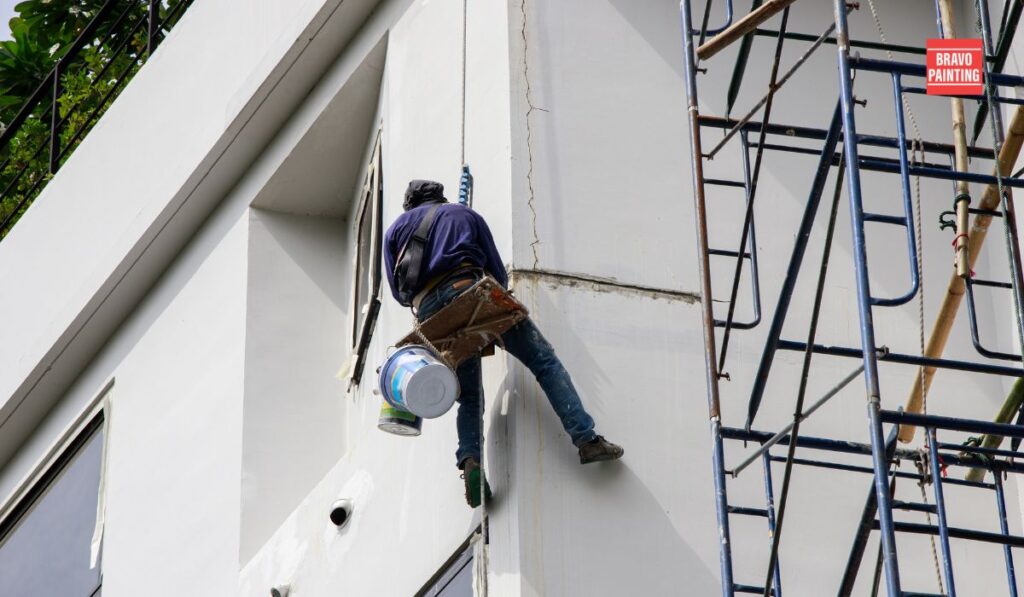When it comes to enhancing the aesthetic appeal and functionality of a commercial space, the importance of a professional paint job cannot be overstated.
Whether you’re refurbishing an office, a retail store, or any other commercial establishment, the right interior painting can transform your environment, boosting employee morale and attracting customers.
However, the success of this transformation largely depends on hiring a competent and reliable commercial interior painting contractor.
Here’s your ultimate guide to making that critical decision.
Why Hire a Professional Commercial Interior Painting Contractor?
Expertise and Experience
Professional contractors bring years of experience and expertise to the table.
They understand the nuances of different types of paints, finishes, and techniques required for commercial spaces.
This knowledge ensures that the paint job is not only aesthetically pleasing but also durable and appropriate for the specific environment.
Efficiency and Time Management
Commercial painting projects often have strict deadlines, especially if the business needs to continue operations with minimal downtime.
Professional contractors have the resources and workforce to complete the job efficiently and on schedule, ensuring minimal disruption to your business.

Quality Assurance
A professional contractor guarantees high-quality work.
They use top-grade materials and adhere to industry standards, providing you with a finish that stands the test of time.
They also offer warranties for their work, giving you peace of mind.
Steps to Hiring the Right Contractor
Define Your Project Scope
Before you start looking for a contractor, clearly define the scope of your project.
Determine the areas to be painted, the type of paint you prefer, and any specific requirements, such as eco-friendly paints or specialized finishes.
Having a detailed project scope helps in getting accurate estimates and ensures that you and the contractor are on the same page.
Research and Compile a List
Start by researching potential contractors.
Ask for recommendations from other businesses, check online reviews, and look at local business directories.
Compile a list of possible contractors who have experience in commercial interior painting.
Check Credentials and Experience
Verify the credentials of the contractors on your list.
Ensure they have the necessary licenses, insurance, and certifications.
Experience is crucial, so look for contractors who have a proven track record with similar projects.
Ask for a portfolio of their previous work and references from past clients.
Request Detailed Estimates
Contact the shortlisted contractors and request detailed estimates.
A comprehensive estimate should include the cost of labor, materials, and any additional charges.
It should also outline the project timeline and payment schedule.
Comparing estimates helps you understand the market rate and ensures there are no hidden costs.
Evaluate Communication and Professionalism
Effective communication is critical to a successful project.
Pay attention to how promptly and clearly the contractors respond to your inquiries.
Professionalism in their communication and presentation is often indicative of their work ethic and reliability.
Discuss the Contract
Once you’ve chosen a contractor, discuss the contract in detail.
The agreement should cover all aspects of the project, including the scope of work, materials to be used, timeline, payment terms, and warranty.
Ensure you understand all the terms and that there is a clause for any changes or unexpected issues that may arise during the project.
Supervise the Project
Even after hiring a professional, stay involved in the project.
Regularly check the progress, address any concerns promptly, and ensure that the work aligns with the agreed-upon terms.
This helps in maintaining quality and adherence to the timeline.
Tips for Ensuring a Successful Project
Choose the Right Paint
Selecting the correct type of paint is crucial.
For commercial interiors, consider durable, easy-to-clean, and resistant to wear and tear paints.
Consult your contractor for recommendations based on your space’s specific needs.
Plan for Minimal Disruption
Work with your contractor to schedule the painting work during off-hours or weekends if possible.
This minimizes disruption to your business operations and ensures a smoother workflow.
Focus on Safety
Ensure that the contractor follows all safety protocols, especially in a commercial setting.
This includes proper ventilation, use of non-toxic paints, and adherence to occupational safety regulations.
Final Inspection

Before making the final payment, conduct a thorough inspection of the completed work.
Ensure that all areas are painted to your satisfaction and that any issues are addressed promptly.
A professional contractor will be willing to make any necessary touch-ups.
Conclusion
Hiring the right commercial interior painting contractor can significantly affect the outcome of your project.
By following these steps and tips, you can ensure that you select a contractor who will deliver high-quality results, enhancing the appearance and functionality of your commercial space.
Remember, investing in a professional and reliable contractor is an investment in the future success of your business.
For expert commercial interior painting services, consider Bravo Painting.
Visit their website to learn more and get started on transforming your commercial space today!
FAQs
Why should I hire a professional commercial interior painting contractor?
Expertise and Experience: Professional contractors bring years of experience and knowledge, ensuring the paint job is aesthetically pleasing, durable, and suitable for your commercial environment.
Efficiency and Time Management: They can complete the job efficiently and on schedule, minimizing downtime and disruption to your business operations.
Quality Assurance: Professional contractors use high-quality materials, adhere to industry standards, and often provide warranties, guaranteeing a long-lasting finish.
What steps should I take to hire the right contractor?
- Define Your Project Scope: Clearly outline the areas to be painted, the type of paint, and any specific requirements.
- Research and Compile a List: Get recommendations, check online reviews, and create a list of potential contractors.
- Check Credentials and Experience: Verify licenses, insurance, certifications, and past project portfolios.
- Request Detailed Estimates: Obtain comprehensive estimates detailing costs, timelines, and payment schedules.
- Evaluate Communication and Professionalism: Assess how promptly and clearly contractors respond to your inquiries.
- Discuss the Contract: Ensure the contract covers all project aspects, including scope, materials, timeline, payment terms, and warranty.
- Supervise the Project: Stay involved, monitor progress, and address any concerns promptly to maintain quality and adherence to the timeline.
What should be included in the project scope?
The project scope should detail the specific areas to be painted, the type of paint and finishes required, and any additional specifications, such as eco-friendly products or specialized techniques. This clarity ensures accurate estimates and aligned expectations with the contractor.
How do I verify a contractor’s credentials?
Check that the contractor has the necessary licenses, insurance, and certifications. Ask for a portfolio of their previous work and references from past clients to verify their experience and reliability.
What should I look for in a contractor’s estimate?
A detailed estimate should include:
- Cost of labor and materials
- Any additional charges
- Project Timeline
- Payment schedule
Ensure there are no hidden costs and that the estimate is comprehensive.
How can I ensure minimal disruption to my business during the painting project?
Coordinate with your contractor to schedule the painting during off-hours or weekends. This minimizes disruption to your daily operations and allows for a smoother workflow.
What safety protocols should a contractor follow?
Ensure the contractor adheres to safety protocols, including proper ventilation, use of non-toxic paints, and compliance with occupational safety regulations. This is crucial in maintaining a safe environment for your employees and customers.
How do I conduct a final inspection of the completed work?
Before making the final payment, thoroughly inspect the painted areas. Ensure all areas are painted to your satisfaction, and address any issues promptly. A professional contractor should be willing to make any necessary touch-ups.
Why is it important to stay involved in the project?
Staying involved allows you to monitor progress, address concerns promptly, and ensure that the work aligns with the agreed-upon terms. This helps in maintaining the quality of the work and adhering to the timeline.
How do I choose the right type of paint for my commercial space?
Consult with your contractor to select durable, easy-to-clean, and resistant-to-wear and tear paints. They can recommend the best options based on your space’s specific needs.
What if there are changes or unexpected issues during the project?
Discuss with your contractor beforehand and ensure the contract includes a clause for changes or unexpected issues. Clear communication and a flexible approach can help in addressing any unforeseen circumstances.
Blog, Interior Painting

